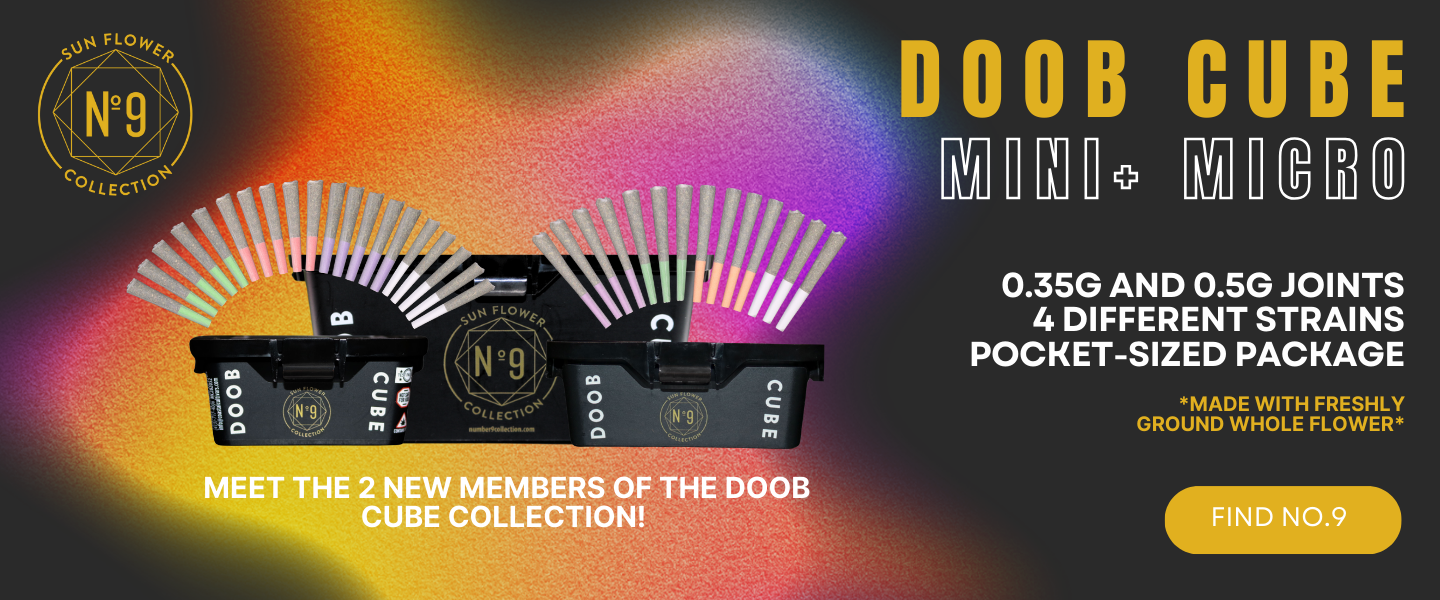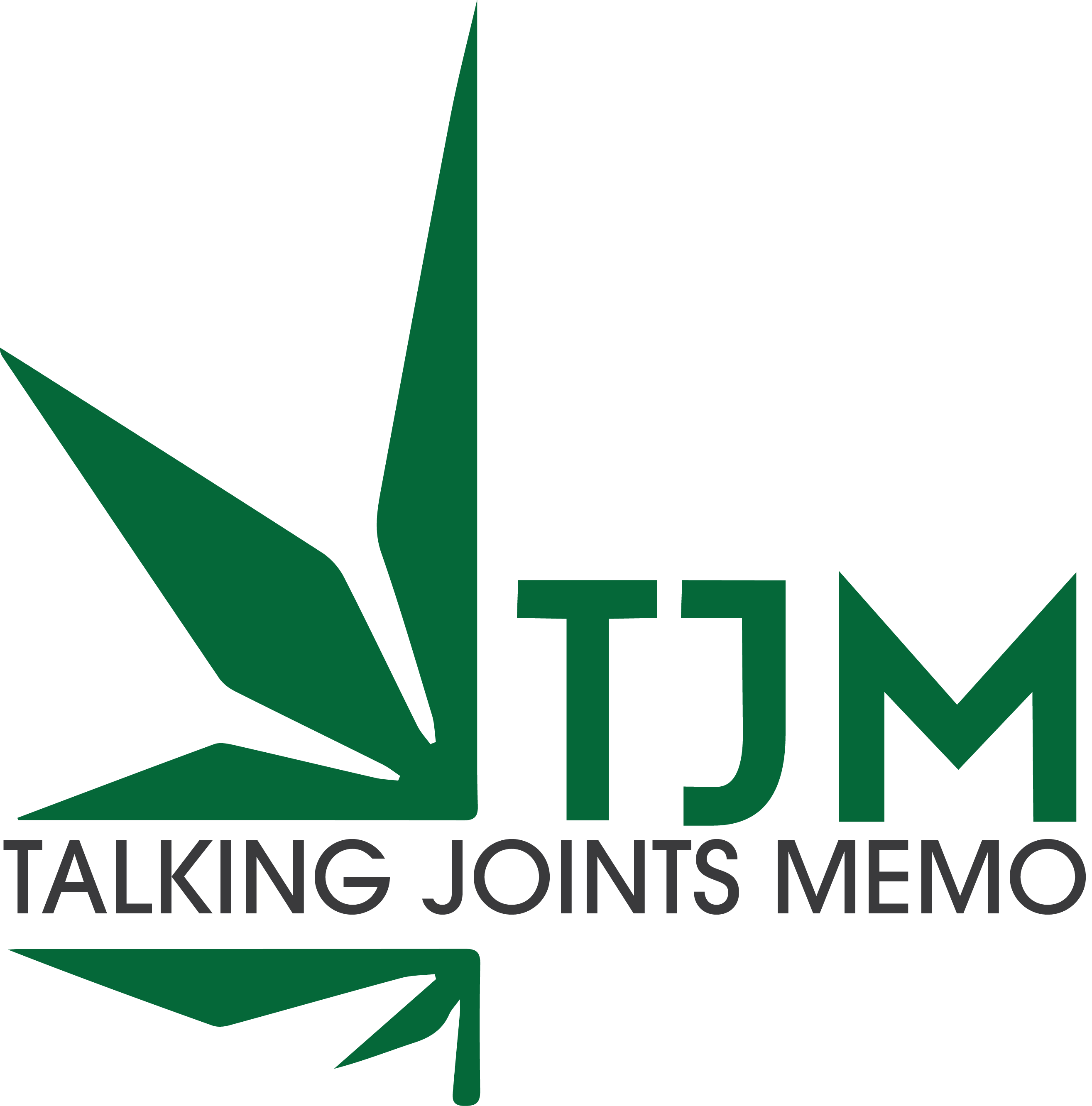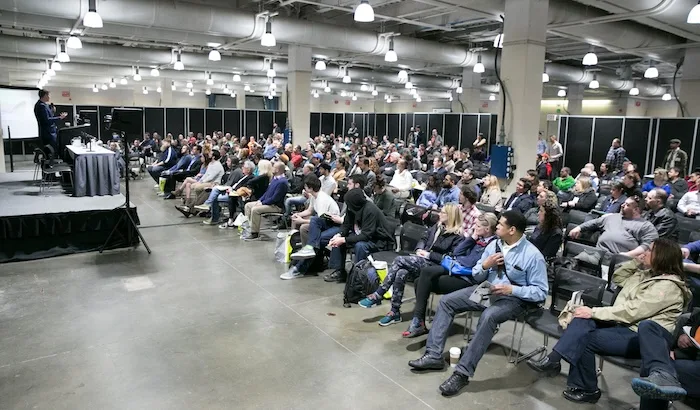
From politics and business, to media and privacy, to veteran access and social equity, some of the brightest New England Cannabis Convention speakers are soothsayers
Talking Joints Memo has been close to the team behind the New England Cannabis Convention since its inception in 2015, and are excited to be partnering with NECANN on a special glossy print magazine in honor of the 10-year anniversary in 2024. The publication, which will be free to Boston convention attendees on a first-come, first-served basis, will feature everything from interviews and editorials to photo galleries and highlights from the past decade like this roundup below.
If those who have presented solo at NECANN over the past decade assembled with the hundreds of professionals who participated on panels in the dozen cities the convention has pulled through, the resulting bloc would undoubtedly be the premier coalition of cannabis cognoscenti on earth.
With so much mental muscle talking marijuana year after year, it seemed futile to simply furnish a list of past speakers and topics. Some subjects become stale, while many participants have changed places and positions since their standout panel appearances.
At the same time, there have been countless prescient points made—many that forecast excitement and pitfalls ahead, and others that critically helped attendees prepare for the future. Here’s a select few comments we picked from hours of past presentations we pored over while preparing for this year’s bigger-than-ever-before program.
Will Luzier on the prospects of Ballot Question 4 at NECANN Boston (April 2016)
“Our message [in one particular ad campaign] was that these political leaders were promoting the expansion of access to alcohol, and they were also at the same time advocating to continue the prohibition of marijuana. And we thought that was a contradiction. … We feel like we are moving forward in Massachusetts, and it looks like the polling is fairly good. We don’t want to make any enemies. You catch more flies with honey than you do vinegar. … There’s no question that the message is that marijuana is much safer than alcohol.”
Nic Easley on realities of the coming adult-use market at NECANN Boston (April 2017)
“You need a business process and plan—who are we, what are we going to do, and how are we going to do it? What resources do we need? It’s not just, I know how to grow dank weed. That’s great, it’s a weed, it’s not that hard to grow, but there are challenges—temperature, air flow, humidity, CO2 concentration, worker flow, biosecurity. There are all these asterisks that go into it. So sometimes you just have to take the time to stop, realize what you are doing, and improve your processes. And do you really know the rules of your marketplace? That’s the most common problem I see. … You have to realize that a lot of your vision, you probably can’t actually do, so before you go and get too attached to something, go out and learn the rules.”
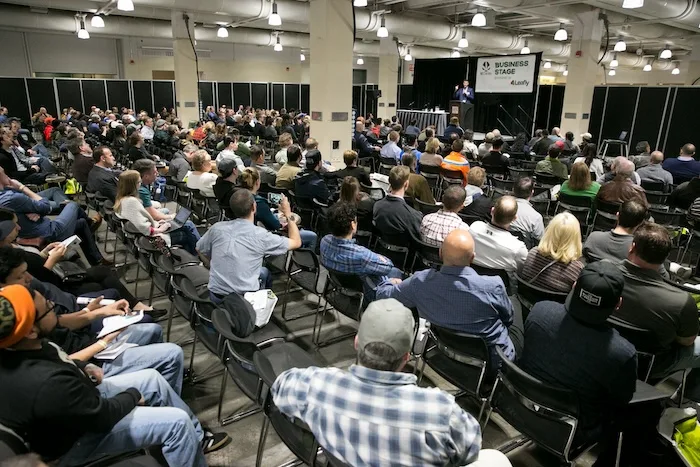
Sarah Stenuf on veterans and cannabis at NECANN Boston (April 2017)
“When we come home, one in five veterans face PTSD and a lot of veterans are facing stigmas in regards to PTSD and substance abuse. These are stigmas … we weren’t prepared for, and that the communities we’re coming home to weren’t prepared for—and adding cannabis into that mix makes for another whole whirlwind. So finding a community like this provides a lot of knowledge as well as comfort, but for yourself, the important thing is that you first have to go and you have to get educated.”
Dan Bolton on privacy at NECANN Boston (March 2018)
“It can be a slippery slope to put yourself out there or establish yourself as a cannabis-related business or health practice. We want to encourage patients to be very conscious about what they decide to share and to be informed about what’s involved with that. Are you prepared for any sort of the backlash that might come from that? We’re dealing with a federal government that still wants to get access to patient lists in states that have medical marijuana programs. There are still risks out there, and it’s also still important for us as practitioners to protect the privacy of our patients and to make sure that if they want to be active, it’s conscious and of their making.”
Pete Tranchemontagne on hemp prospects at NECANN Maine (October 2019)
“There is a market for you to get into this. You’re not a drug dealer, you’re growing a plant that is industrial cannabis. This is the only reason I came today, so if you’re out there and you are a farmer, there’s a whole reason you should be doing this—this is a viable product. … There are buyers out there right now who want your hemp if it’s .3% or lower on the THC levels.”
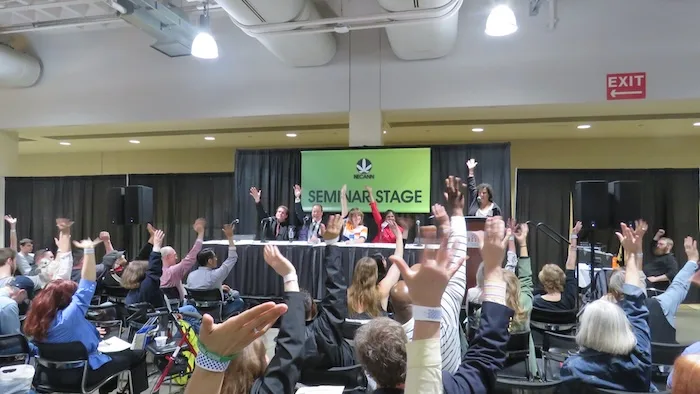
Brit Smith on media and science at NECANN Boston (March 2019)
“The medical world has the most potential for stories. It’s not just about telling personal and individual stories, it’s about talking to scientists and medical experts who can explain how the endocannabinoid system works. Why does cannabis work for pain and it also works for insomnia? How does it maybe kill cancer? I want to talk to the doctors and medical experts who are researching this stuff, and it’s not necessarily in the US. A lot of research is going on abroad. … This is an interesting sphere for a lot of people, and it can really have an impact on the way that healthcare changes in the future.”
Laury Lucien on acknowledging the war on drugs at NECANN Virtual (May 2020)
“People still have a stigma about who’s in jail, who I call the ancestors, but … those are [the individuals behind the] statistics that we use to show the inhumane way that we the American people have treated Americans in this country. … I want people to stop thinking with a logic only rooted in money and start seeing people, and start seeing that this is an industry that belongs to those in jail. This industry belongs to those whose neighborhoods have been destroyed by [the war on drugs]. … We need people to do better, and by that we mean people need to change their minds and their hearts, and stop seeing people as criminals. … When you empower yourself to know that this plant is healthy, and that this plant is not demonic, that helps reduce the stigma.”


